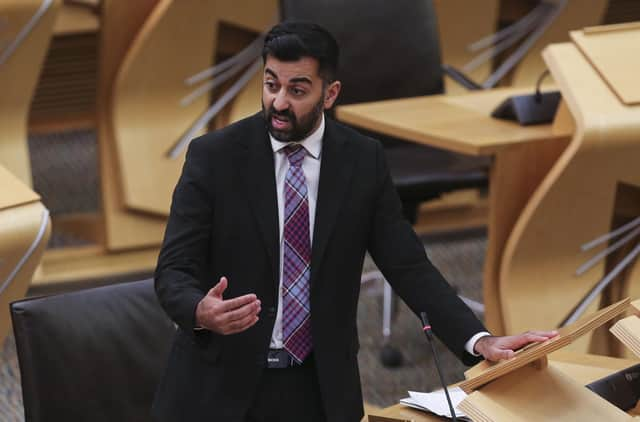Leader - We should beware of too much caution


The weeks and months that followed were marked by a sense of solidarity and shared endeavour between the Scottish and UK administrations that was almost refreshing to seasoned observers of the often antagonistic nature of relations between the two.
As the pandemic progressed, however, fault lines emeged. Each decision from Downing Street seemed to be followed by a very slightly different - usually more cautious - one from Ms Sturgeon. Now, in the endgame of the crisis, these fault lines have grown into gaping chasms.
Advertisement
Hide AdAdvertisement
Hide AdScotland’s health secretary Humza Yousaf yesterday urged the UK Government not to “force the hand” of devolved administrations by ending free Covid testing across the UK. He said: “If we want to respond in a slightly more cautious manner then don’t pull the rug from underneath our feet.”
Throughout the pandemic the Scottish Government’s approach has been largely more cautious than that of the UK’s. Critics claim this has made little if any difference to outcomes north of the Border. Others suggest Ms Sturgeon’s room for manoeuvre has been limited by decisions taken at Westminster.
Mr Johnson has announced the end of restrictions in England could come later this month. In Scotland, ministers have moved to extend the period in which emergency powers, over such things as face coverings, the closure of schools and the early release of prisoners, might apply until September.
Disagreement over the changing response to Covid should be expected, but governments must not hold on to emergency powers once the point of emergency has passed.
As the Law Society of Scotland warns: "These provisions have the potential to result in very significant restrictions on liberty being imposed by regulation, with reduced opportunities for parliamentary oversight and scrutiny. This creates a risk of misuse, or of powers being used in error."
Comments
Want to join the conversation? Please or to comment on this article.